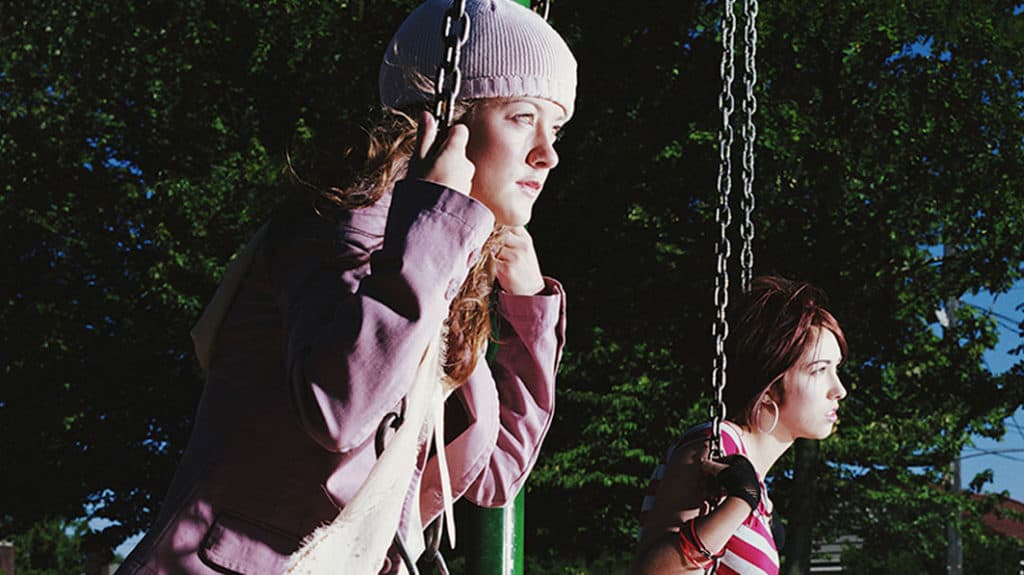
Parenting Tips for Guiding Your Kids in the Digital Age
Whether it’s emerging AI, gaming, social media, smartphones, music apps or video streaming, the pull of technology is very real to our kids.

Help your teen see that hope is always there.
It’s not just teens that are talking about the Netflix series “13 Reasons Why.” Parents are also curious about the story of Hannah Baker and her descent into suicide. “What message does this show send to kids?” some have asked. “Does it really glorify suicide?
Download the Parenting Guide to 13 Reasons Why.
As a parent and family counselor, I was disturbed by the show’s shocking, graphic depictions of suicide, bullying and rape. And I question the premise of the show, that Hannah’s tragic story was the direct result of the terrible actions of others. This is a grotesque over-simplification of a serious issue. Mental illness and depression were never mentioned, and the story never revealed the true hope and help available to real teens who struggle with depression.
Related reviews: TV Show Review; Book Review and discussion questions
So while I wouldn’t recommend this series, I do think it’s important for parents to honestly and openly discuss the troubling challenges it portrays. More importantly, our teens need to know that there is always hope and help. Here are 13 messages every young adult needs to hear:
Teens need to understand that they are a necessary part of their family and their community. They have parents and siblings who love them and want them in their lives. They also need to see themselves as important members of a church community, a small part of the big family of God.
We must help our teens recognize that God sees them as precious works of their Creator. The Bible says we are God’s masterpiece, His “handiwork created in Christ Jesus to do good works” (Ephesians 2:10 NIV). The Creator “fearfully and wonderfully” made your teen (Psalms 139:14).
I always love seeing teens discover for the first time something that they’re good at, some natural or learned gift that they’d never truly recognized before. It gives them a new view of the world outside of high school, a glimpse of the potential paths their life may take. This is one of our most precious opportunities as parents, to help our young people find that corner of the world that they can step into with confidence and competence and affirm them in this gifting.
Our young people need to understand that life is a bit like a roller coaster. Filled with ups and downs, it has a way of changing at any moment. It can change for the worse, but it can also change for the better, and much of that depends on how we respond to challenges. Kids need to hear that misery and misfortune represent a low moment, but hope lies just ahead. I love that old advice (often attributed to either Franklin Roosevelt or Thomas Jefferson): “When you get to the end of your rope, tie a knot and hang on.” Our teens need to recognize that even in life’s worst hour, a new day is just over the horizon.
Teens tend to be very close to and wrapped up in isolated moments — like a museum visitor standing directly in front of a giant painting and analyzing the brush strokes in the center. There would be no painting without those brush strokes, of course, but it’s always necessary to step back and consider the full view. Likewise with our teens, we can encourage them to take a deep breath, step back and consider the big picture. There is so much blank canvas to be filled in! We must help our teens recognize that their lives will be composed of many bright and dark details, but together they make up a grand, unique masterpiece.
I like to help kids think of a well-rooted tree. After a deep watering, it grows stronger and healthier even in the heat. And when winds come, the tree is strengthened for the next storm. It’s the same for people. When we face trials, we grow stronger, better able to face future trials. Adversity is kind of like exercise; it strengthens us. As parents, we can always be showing our kids examples of how people who have journeyed through adversity have emerged stronger. In fact, people with tough backgrounds are often better able to handle the adversity of adulthood.
Any teenager who has had suicidal thoughts needs to recognize that suicide is an unnatural ending to what could have been a longer, more beautiful story. There can be no possibility of redemption, no victory after adversity, no hope of a new day. Suicide isn’t revenge or retaliation. It just cuts short the story, long before it is fully written. It is an irreversible decision.
“Curse God and die,” Job’s wife said to him as he faced pain, loss and illness. Had he done so, he would have missed out on the rich blessings that God had in store for him, not to mention a powerful and enlightening encounter with the Creator of the universe. There was so much more to God’s work in Job’s life than sitting on an ash heap. Let’s help our teens see that God’s story is crafted on a different timeline than the dark periods of our life. He is not done with any of us just yet. “And after you have suffered a little while, the God of all grace, who has called you to his eternal glory in Christ, will himself restore, confirm, strengthen, and establish you” (1 Peter 5:10).
Many teens who journey through adversity become familiar with that old objection to trusting God: If He truly loved me, why would He allow me to encounter so much pain? We can help our kids see that God’s precious promise to us is that He will guide and strengthen us through adversity, and does not always steer us clear of it. And while He may not protect us from life’s challenges, He loves us and “comforts us in all our affliction” (2 Corinthians 1:4). I love the reassurance in Isaiah 26:3: “You keep him in perfect peace whose mind is stayed on you, because he trusts in you.“ Who does your child trust? Help your child find true mental peace through trust in God, even though He does not promise a safe or easy journey.
I’ve met several teens who tell me that they just don’t feel like anyone knows they are there. They doubt anyone would realize it if they were to disappear from the face of the earth. Sometimes young people just need someone to see them and hear them. There’s something special about a relationship when teens look to us as safe to open up to. As parents, listening without judgment helps us learn more about what’s going on in our child’s life. This is more than just a passive action. True listening has the power to validate the other person’s emotions and experiences.
We all have the ability to misperceive things, to interpret events and the actions of others in the worst possible light. This is very often true for teens; their brains won’t be fully developed for several more years. The rational areas of a teen’s brain have to catch up with the more well-developed emotional areas of the brain. So their perceptions can be tainted by emotion, sensation or a powerful imagination that believes everyone is mad at them or hates them. They may feel a sense of rejection when other emotions cloud their view, or when other events form a bigger picture that they can’t see. Rejection is processed similarly to physical pain in our brains, so it does actual hurt to be rejected. Help your teen pay attention to their perceptions and emotions — to recognize when their thinking is distorted so they can try to think more realistically and logically about what is really happening.
The one positive message of “13 Reasons Why” is that what teens say and do to each other matters. We can help our teens recognize the negative and positive impact they can have on the others. I encourage my kids to simply be noticers, builders and encouragers. Look around. Build bridges. Connect. See those who are eating alone, who don’t have a partner for the science experiment, or who could use encouragement about some ability they are skilled in. Let’s raise kids who are available to those who may struggling with pain and isolation.
One area that frustrated me about “13 Reasons Why” is the almost total ignorance and absence of the real-world mental health issues behind the tragedy of teen suicide. Hannah’s life seemed to be an intense concentration of the challenges a teen could face — yet with very little mention of the help and healing that is available to kids who hurt. As parents, we mustn’t let our kids ever suffer alone. We are the first-responders to the signs of pain and the silent cries for help. We can help connect them with professional help if needed. No one should have to go through these trials alone. This is an illness that one can recover from. There is help. There is hope.
Daniel Huerta is the vice president of parenting and youth at Focus on the Family.
DO YOU OR SOMEONE YOU KNOW NEED HELP?
If the issues raised in 13 Reasons Why have impacted your own family and you feel it would be helpful to discuss the situation with one of Focus on the Family’s licensed counselors (at no cost to you), please call 1-855-771-HELP (4357) weekdays between 6:00 A.M. and 8:00 P.M. (MT). One of our staff members will get your contact information and a counselor will call you back just as soon as possible. If you or someone you know is actively suicidal, please call the 988 Suicide & Crisis Lifeline at 988.
© 2017 Focus on the Family





Dr. Daniel Huerta is Vice President of Parenting and Youth for Focus on the Family, overseeing the ministry’s initiatives that equip moms and dads with biblical principles and counsel for raising healthy, resilient children rooted in a thriving faith.
He is a psychologist, a licensed clinical social worker, and the author of 7 Traits of Effective Parenting. For many years, he has provided families with practical, biblically-based and research-based parenting advice on topics including media discernment, discipline, communication, mental health issues, conflict resolution, and healthy sexuality in the home. He is passionate about coming alongside parents as they raise contributors, instead of consumers, in a culture desperately in need of God’s kingdom.
Dr. Huerta has been interviewed by various media outlets including Fox News, Fatherly, Christianity Today, WORLD Magazine, and CBN, and he is a frequent guest on Christian radio stations across the nation. He’s also written for publications, including The Washington Post, on various topics related to marriage and parenting. He participated in the development of Focus on the Family’s Launch Into the Teen Years, a resource to help parents prepare their kids for adolescence, and he speaks regularly at retreats, conventions, and online events.
Dr. Huerta has maintained a private practice in Colorado Springs, Colorado since 2003 and has served families through Focus on the Family since 2004. He and his wife, Heather, have been married since 1997 and love being parents to their three teen children, Alex, Lexi, and Maci.

Whether it’s emerging AI, gaming, social media, smartphones, music apps or video streaming, the pull of technology is very real to our kids.

There are ways to motivate kids toward the ideas of belief, values and character qualities without the use of physical restraints or stern parental glares.

Children build their self-confidence through learning small, real life skills.